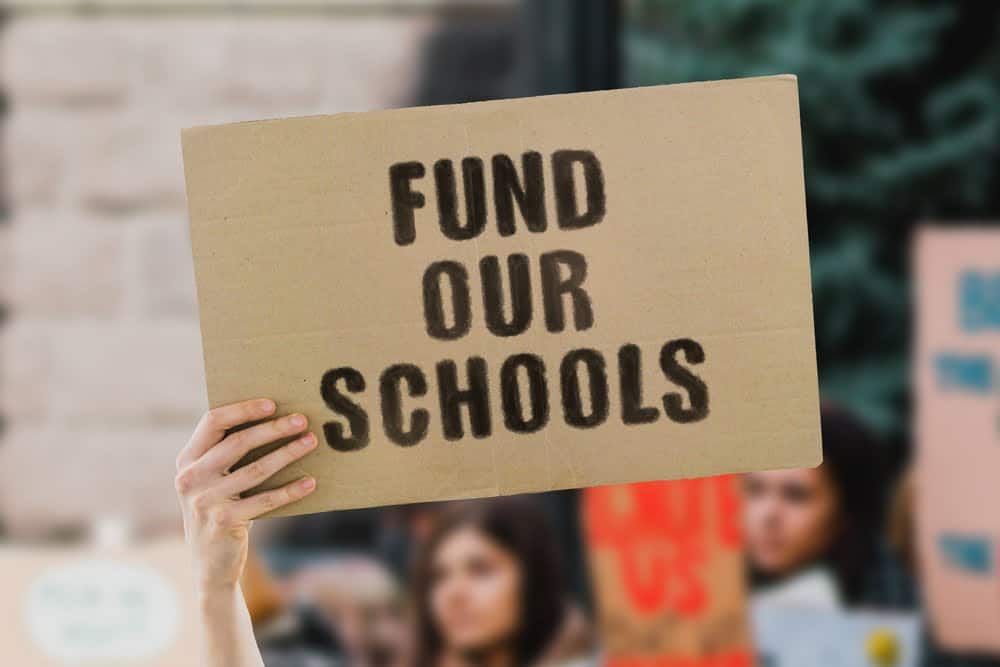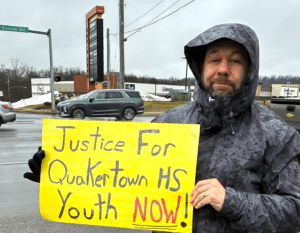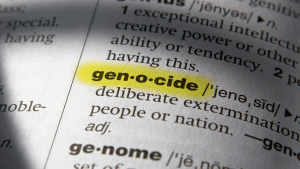Could Pennsylvania find itself the target of a class action lawsuit by public school districts and advocates over the stalled state budget?
At a Centennial School District regular school board meeting August 19, Board Member Michael Hartline floated the idea of gauging interest of other districts in the commonwealth to join together and start a class action lawsuit over an already estimated $4 million combined loss of interest revenue from state funding sources.
“The state does not have a budget. This impacts our district increasing(ly) as time goes on. This affects the entire state – this affects every student in the state, and it needs to come to an end,” Hartline said at the meeting.
He said nine years ago the state budget was not adopted until December and school districts in Bucks County “were taking out promissory notes for a lot of money.”
At that time, Hartline was board president of the Bucks County Intermediate Unit and said his was among the signatures on a loan application for $25 million “to keep us afloat.”
He said at Centennial – and other districts – state revenue is invested when it’s received. The income generated by state funding is used for student programs and expenses.
For July and August alone, Centennial has missed out on roughly $16,000 worth of income from about $2.5 million in state funding it would have received by now.
Pennsylvania has 499 school districts across the commonwealth.
For an average sized district – Hartline multiplied [roughly] by 500, that amounts to about $4 million in lost investment revenue the school districts are not getting, but “that is income the state is getting.”
“That money, as far as I’m concerned, belongs to the taxpayers … For every dollar we send to Harrisburg, we’re not getting a buck back – we’re not even getting close,” he added. “I would like to know if the Bucks County Intermediate Unit, the other school districts in Pennsylvania and in Bucks County, might be interested in starting a class action lawsuit against the state for the calculable amount of money that we are losing as a school district ‘cause it’s going to blow up everybody’s budget.”
As of publication, no public school districts have launched lawsuits against the commonwealth over the current budget impasse – but it’s not unheard of.
In 2014 a group of six school districts, advocacy groups and parents filed – and won – a lawsuit against Pennsylvania’s legislative leaders, state education officials and the government over “failing to uphold” the state constitution over delivering public education to students, according to PA Schools Work.
The more than two-month long tussle between state representatives and senators in Harrisburg over passing a state budget – well beyond the June 30 deadline – is causing educators, parents and school boards sleepless nights.
READ: Pennsylvania’s Budget Impasse Causes Funding Headaches for Public School Administrators
“Generally I am not in favor of lawsuits with little chance of success, especially not [one] district alone. If there is to be one it should be filed by Pennsylvania School Board Association (PSBA) and funded by all districts,” Charles Martin, a Centennial School District school board member said in an email.
Mackenzie Christ, PSBA director of marketing and communications said in an email the organization is “aware some school board members have raised the idea of exploring legal options in response to the ongoing budget impasse and its financial impacts, including interest losses and the use of TRAN.”
TRAN stands for Tax Revenue Anticipation Note, which is a short term loan that can be used by public school districts to cover costs. Interest payments districts must make on these loans are not reimbursed.
“While we are not aware of any class action lawsuit being initiated at this time, we understand the concerns being expressed and recognize the challenges districts are facing,” Christ said.
She said litigation is often a last resort move because it’s complicated, time consuming and costly.
“Our focus at this time remains on advocating for legislative solutions that support public schools and ensure stable, predictable funding. We continue to encourage school leaders, families and taxpayers to also advocate to their legislators to fully fund education and end the budget impasse,” Christ said.






